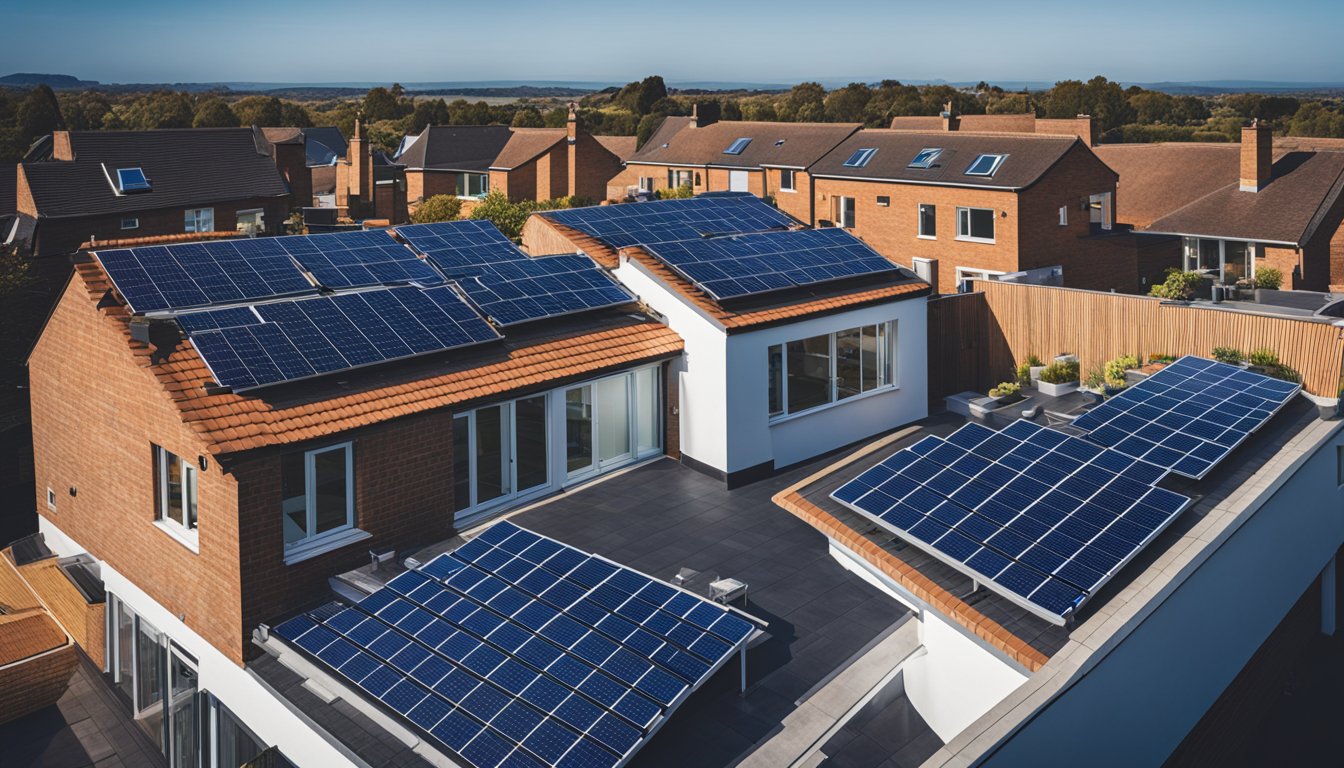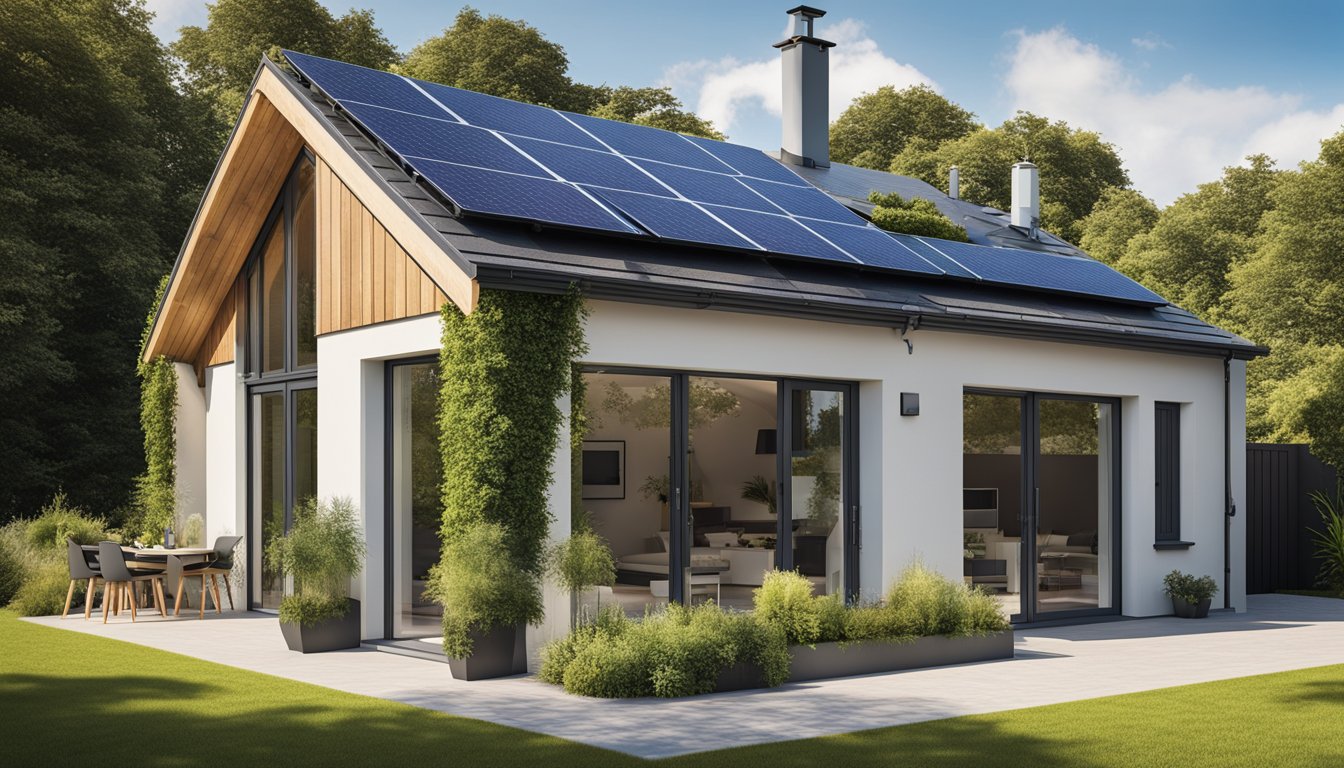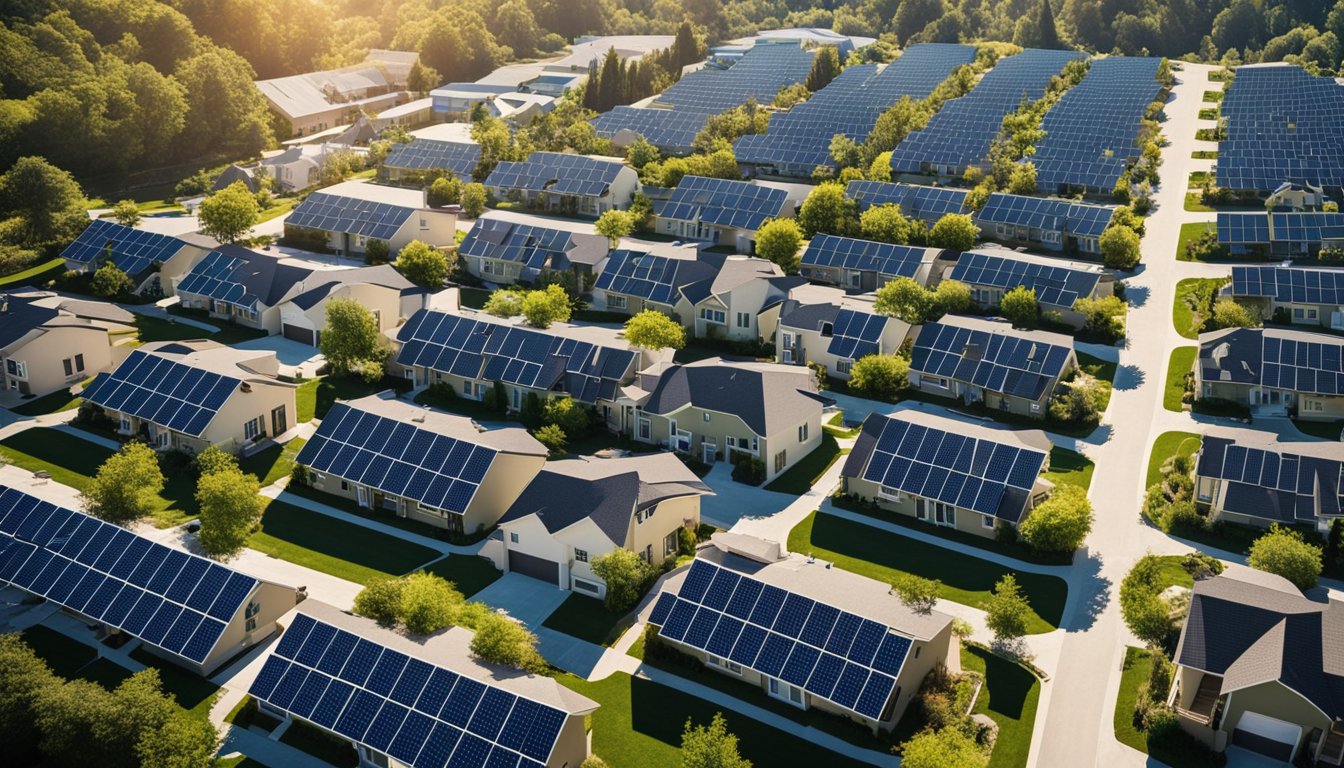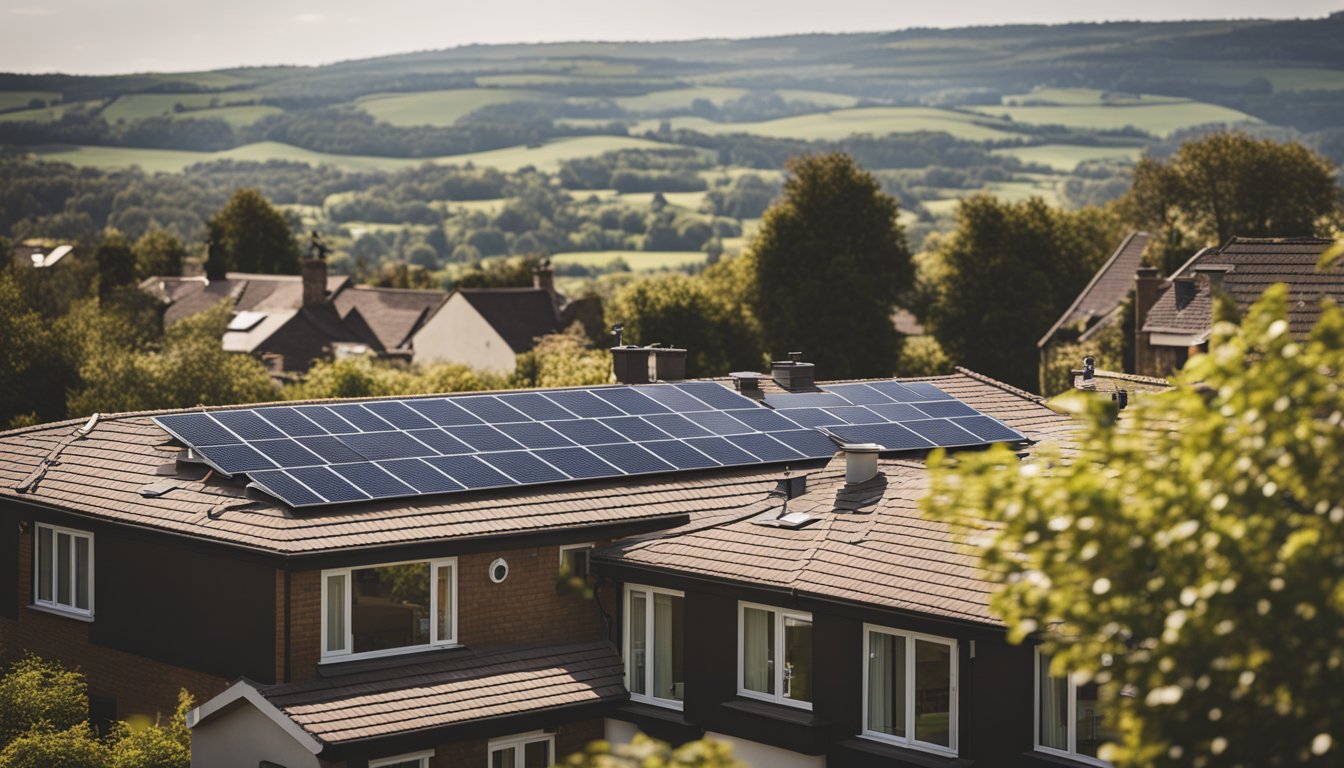Late updated: 22 Feb 2025 13:02
Written by: Eleanor Hartman
Exploring New Solar Technologies for UK Homes: Advancements and Benefits
The landscape of solar energy is evolving rapidly, particularly for homes across the UK. The shift towards sustainable living has spurred significant advancements in solar technologies, making renewable energy more accessible and efficient than ever before. These innovations are empowering homeowners with the tools to significantly cut down on their energy bills while making a meaningful contribution to fighting climate change.

We're witnessing a surge in the development of high-efficiency solar panels, with some models now achieving conversion rates over 22%. This leap in technology enables even homes with limited roof space to generate ample electricity, erasing previous limitations. Government incentives in the UK are further smoothing the path for homeowners to adopt these solar solutions, aiming to meet ambitious environmental targets and reduce the nation's carbon footprint.
As smart home technology integrates with solar systems, the potential for optimising energy use is expanding. Systems can now monitor and adjust energy consumption in real time, offering convenience and cost savings. If you're considering upgrading your home's energy system, these innovations present compelling reasons to make the leap into solar power.
Key Takeaways
- Solar technology advancements offer significant efficiency improvements for UK homes.
- Government incentives are facilitating the adoption of renewable energy in residential areas.
- Integration with smart home systems enhances energy management and cost savings.
Advancements in Solar Technology for Residential Use

In recent years, solar technology has made great strides, expanding possibilities for residential applications. Notable advancements include enhanced solar panel designs, improved energy storage systems, and innovative building integrated solutions.
Innovative Solar Panels and Materials
The solar industry has introduced a variety of advanced solar panels. Among these, bifacial solar panels are gaining popularity due to their ability to capture sunlight from both sides, increasing energy output. Additionally, thin-film solar panels offer flexibility and can be integrated more seamlessly into residential designs.
Perovskite solar cells are another breakthrough. These cells promise high efficiency and lower production costs. They represent a significant shift away from traditional silicon-based solar photovoltaic panels. Each of these technologies contributes to higher solar panel efficiency and presents exciting opportunities for UK homes.
Solar Energy Storage Developments
Energy storage is a crucial aspect for harnessing solar power effectively. Recent developments in battery storage technologies are enabling more homeowners to store solar energy. This enhances our ability to use solar power even when the sun isn't shining.
Lithium-ion batteries remain the standard, though innovations in materials and design are leading to longer-lasting solutions. There is also a growing interest in using microgrids to enhance the resilience and efficiency of residential solar installations. These advances in energy storage solutions are pivotal for increasing the reliability of solar power for households.
Building Integrated Photovoltaics
The concept of Building Integrated Photovoltaics (BIPV) marks an innovative approach where solar technologies become part of the architectural design. These systems serve as both building materials and energy generators, integrating seamlessly into roofs, façades, and windows.
For new builds, BIPV offers an aesthetically pleasing method to comply with building regulations while providing energy efficiency measures. This technology offers architects greater freedom, allowing them to design without compromising on the energy capabilities of solar PV systems. This integration not only enhances the visual appeal of properties but also promotes sustainability and energy self-sufficiency.
Policies, Incentives, and the Path to Zero Emissions

The journey towards zero emissions in the UK is bolstered by government programmes, community solar initiatives, and regulatory frameworks. These elements aim to promote energy independence and aid in the rooftop revolution by providing necessary support and guidelines. Understanding these aspects is critical to harnessing solar energy effectively.
Government Programmes and Financial Incentives
The UK government has introduced various programmes to encourage the adoption of solar technologies. Financial incentives, such as the Smart Export Guarantee (SEG), allow homeowners to sell surplus energy back to the grid, enhancing energy independence. The Future Homes Standard, another initiative, mandates that new homes must be more energy-efficient from 2025 onwards.
These policies not only reduce carbon emissions but also support the growth of rooftop solar installations. By investing in solar energy, we contribute to a cleaner power system, ensuring a more sustainable future for the average UK home.
Community and Domestic Solar Project Initiatives
Community projects are vital for expanding solar presence across the UK. These initiatives often involve local governments and non-profit organisations working together to install solar panels on public buildings and promote domestic projects. Community solar projects enable neighbourhoods to collectively invest in solar power, making renewable energy more accessible.
Such collaborations support the broader rooftop revolution by providing resources and expertise to implement solar strategies. This, in turn, accelerates progress towards net zero by amplifying the collective impact on reducing carbon emissions and fostering a culture of sustainability.
Regulatory Landscape and the Role of the Climate Change Committee
The Climate Change Committee (CCC) plays a crucial role in shaping the regulatory environment for solar energy and emissions reduction. The CCC's recommendations guide policymaking and ensure that efforts align with the UK's net zero commitments. Regulations are designed to facilitate the integration of solar technologies into the national grid efficiently.
It is essential for policies to remain dynamic, adapting to technological advancements and changing environmental needs. The CCC ensures the regulatory landscape evolves to support sustainable growth, advocating for a mix of incentives and mandatory standards that drive the country toward achieving zero emissions.
Frequently Asked Questions

In exploring solar technologies for UK homes, we address key questions on technological advancements, cost-effectiveness, potential drawbacks, future innovations, and consumer-ready products. Our focus is to provide clarity for UK homeowners considering solar energy solutions.
What are the latest advancements in solar panel technology for UK households?
Recent innovations include solar power integration into everyday materials, such as solar power windows. These double as both transparent windows and electricity generators. Improved solar panel efficiency also allows for better performance even during limited sunlight periods typical in the UK.
How cost-effective are the new solar technologies for UK homeowners?
With incentives like the Smart Export Guarantee, homeowners receive payments for surplus energy fed back to the grid. These financial benefits, alongside decreasing costs of solar installations, contribute to a more affordable transition to solar energy for UK residents.
What are the potential drawbacks of installing solar panels in UK residences?
Installation can be costly upfront and is heavily reliant on roof orientation and sunlight exposure. Not all roofs may aptly support solar panels, impacting efficiency. Additionally, aesthetic concerns may deter some homeowners from installing solar systems.
Is there a new technology on the horizon that could surpass current solar panels for domestic use?
Innovative products such as thin-film solar cells and perovskite solar cells are under development. They promise higher efficiency and flexibility, posing potential future alternatives to traditional solar panels. However, they are not yet widely available for residential use.
What innovations in solar energy products are currently available for UK consumers?
UK consumers can explore products like solar water heaters, solar battery storage systems, and solar roofing tiles. Each offers unique benefits, enhancing energy efficiency and energy independence for homeowners.
Can UK households completely eliminate electricity bills by using advanced solar panel systems?
While it is possible to significantly reduce electricity bills, complete elimination can be challenging. This depends on factors like household energy consumption, storage capabilities, and local climate conditions. Storage systems help retain energy for use during non-sunny periods, bridging the gap when sunlight is scarce.